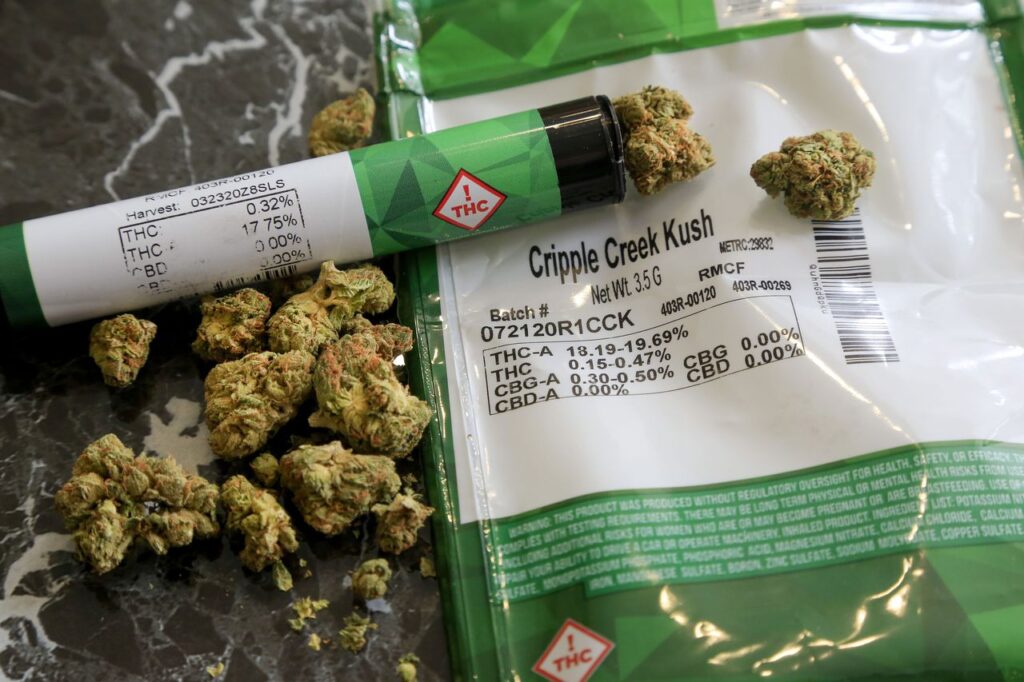The THC percentages of recreational marijuana are visible on product packaging April 19, 2021, in Mamaroneck, New York.
Two Senate lawmakers are making a new run at legalizing marijuana in Pennsylvania.
Sens. Dan Laughlin, R-Erie, and Sharif Street, D-Philadelphia, introduced a bill Thursday that would allow those 21 and older to use recreational marijuana in the state.
The measure would include provisions for enforcement of DUI and pursuit of illegal markets, as well as deterrence efforts to keep marijuana out of the hands of children and ban any marketing toward children, according to Laughlin and Street’s co-sponsorship memo.
It also would allow medical marijuana patients to grow their own cannabis plants and would expunge all non-violent marijuana convictions.
Recreational marijuana is legal in the District of Columbia and 23 states, including four that border Pennsylvania: New York, New Jersey, Delaware and most recently Maryland.
Gov. Josh Shapiro backs legalizing marijuana but support is mixed in the legislature, which has failed to approve legalization bills introduced since at least 2019.
Polls have found an increasing number of Pennsylvania residents support legalizing recreational marijuana.
A 2021 Franklin & Marshall College poll found 6 in 10 registered Pennsylvania voters supported allowing recreational marijuana use.
Laughlin and Street, in their co-sponsorship memo, said without marijuana legalization Pennsylvania will continue to lose out on hundreds of millions in tax revenue.
“It is our duty to taxpayers to seize the initiative and legalize marijuana concurrently with bordering states,” the memo said. “Failure to do so risks permanently ceding hundreds of millions of dollars of new tax revenue as well as thousands of jobs at a time when taxpayers can least afford it.”
Pennsylvania’s Independent Fiscal Office in 2021 projected marijuana legalization would generate $400 million to $1 billion in new tax revenue.
Legislation that would relax Pennsylvania’s 7-year-old Medical Marijuana Act and allow doctors to certify medical cannabis as a suitable treatment regardless of the patient’s medical condition was overwhelmingly approved by a Senate committee last month.



